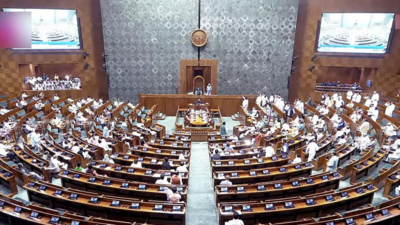
The proposed legislation is designed to impose stricter regulations on Waqf Boards, which are responsible for managing properties designated for charitable purposes in accordance with Islamic law. Critics argue that these boards have operated with significant autonomy, leading to instances of financial mismanagement and disputes over property management. The government's initiative seeks to ensure greater transparency and accountability within these organizations.
Central to the bill is the introduction of a regulatory framework that will enhance oversight of Waqf Board activities. This framework is expected to include measures for regular audits, stricter compliance requirements, and clearer guidelines on the management and allocation of Waqf assets. By tightening these regulations, the government aims to prevent misuse of funds and ensure that Waqf properties are used effectively for their intended charitable purposes.
The initiative has been driven by numerous reports and investigations highlighting issues within various Waqf Boards. These investigations have uncovered a range of problems, from financial discrepancies to alleged corruption, prompting calls for reform from both within the Muslim community and the broader public. The government's response underscores its commitment to addressing these concerns and restoring public trust in the management of Waqf assets.
Key aspects of the proposed bill include the establishment of a central oversight body tasked with monitoring Waqf Board operations and enforcing compliance with the new regulations. This body will be empowered to conduct audits, investigate complaints, and take corrective actions where necessary. Additionally, the bill seeks to provide greater clarity on the roles and responsibilities of Waqf Board members, aiming to reduce instances of mismanagement and enhance overall governance.
The move to reform Waqf Boards has been met with a mix of reactions. Supporters of the bill argue that it is a necessary step to ensure that charitable resources are managed efficiently and ethically. They highlight that increased oversight will help prevent abuses of power and ensure that Waqf properties serve their intended purpose. Opponents, however, caution that the new regulations could potentially undermine the autonomy of Waqf Boards and impact their ability to operate effectively.
As the government prepares to table the bill in Parliament, it is expected to generate significant debate. Lawmakers will need to carefully consider the balance between increased oversight and the preservation of Waqf Board autonomy. The outcome of this legislative process will be closely watched, as it could set a precedent for the management of charitable organizations and the broader issue of governance in religious and non-profit sectors.
The proposed reforms reflect a broader trend of increased scrutiny and regulation of religious and charitable organizations worldwide. As governments and regulatory bodies seek to address concerns over financial transparency and governance, similar initiatives are being implemented in various jurisdictions. The effectiveness of these measures in achieving their goals will likely be assessed in the coming months, as the bill moves through the legislative process and its impact on Waqf Boards becomes clearer.
